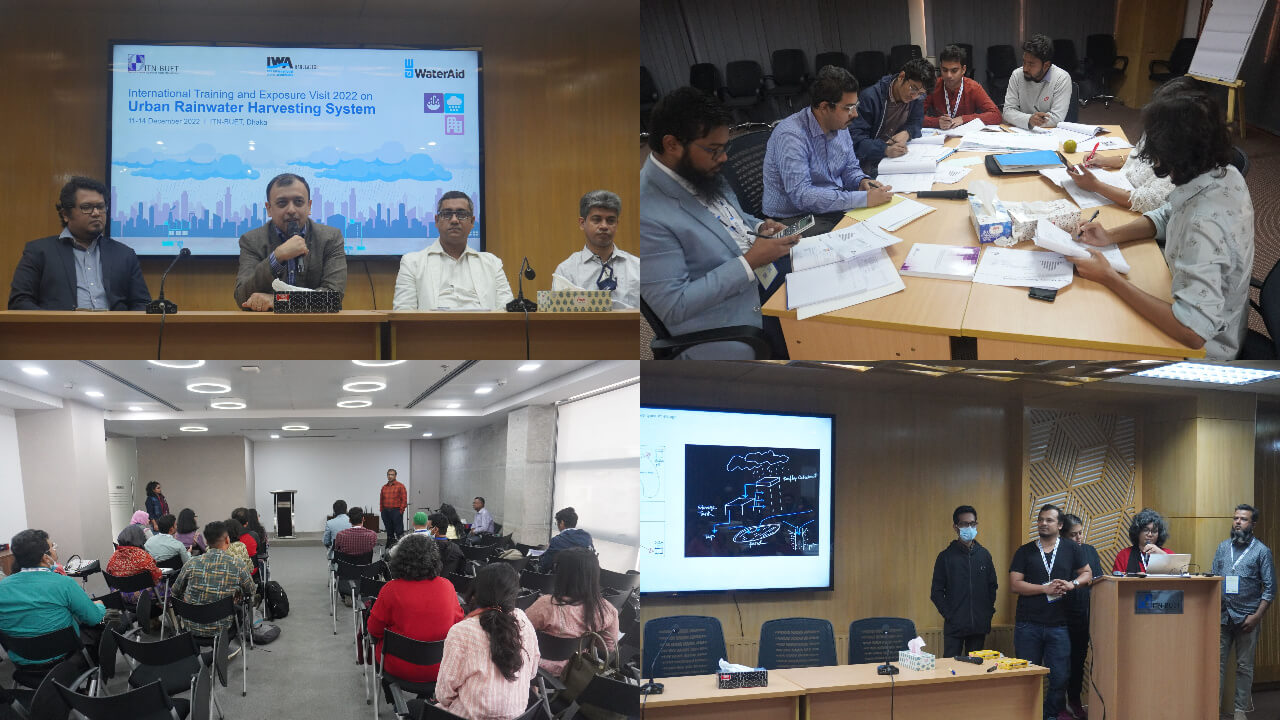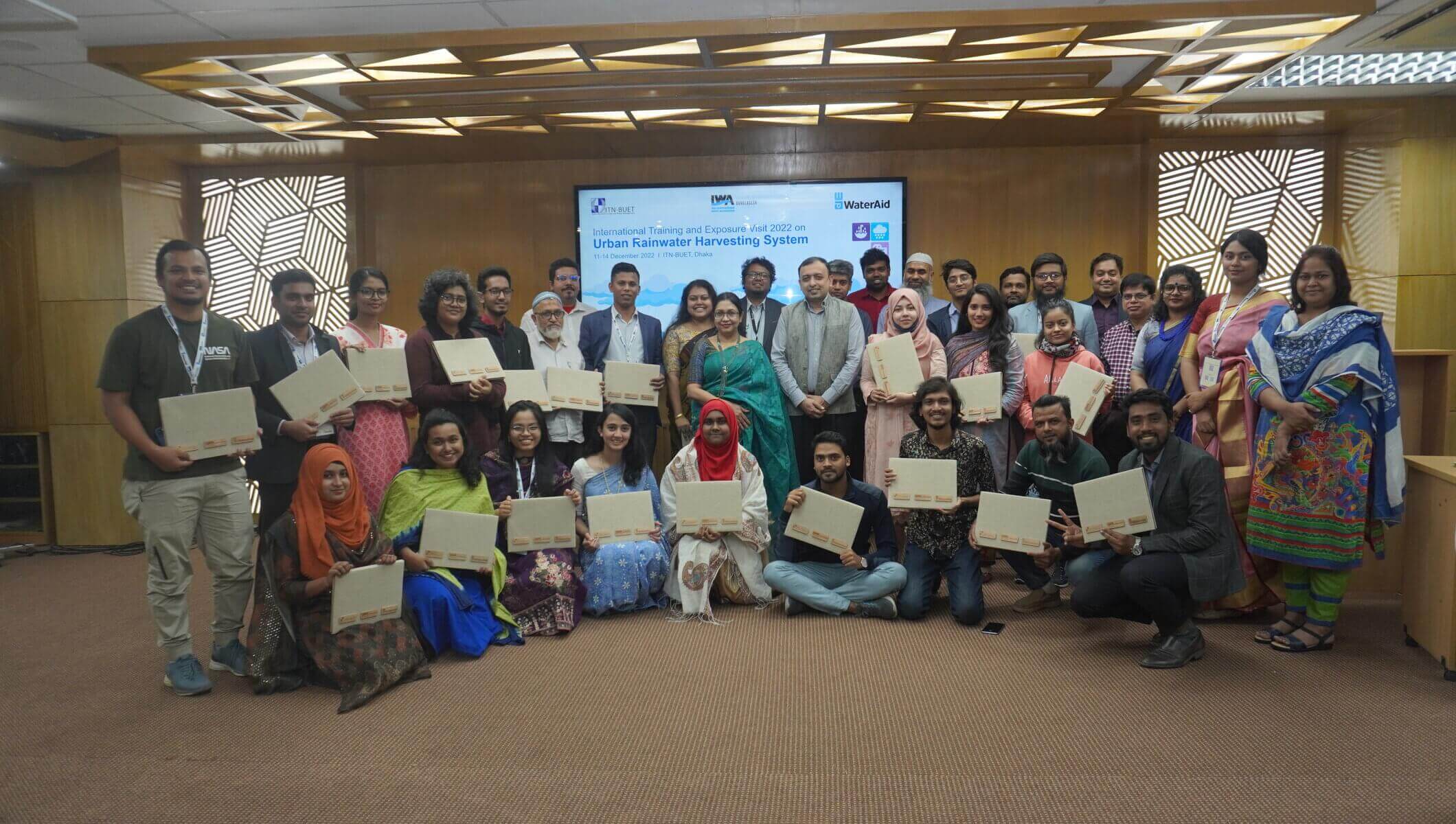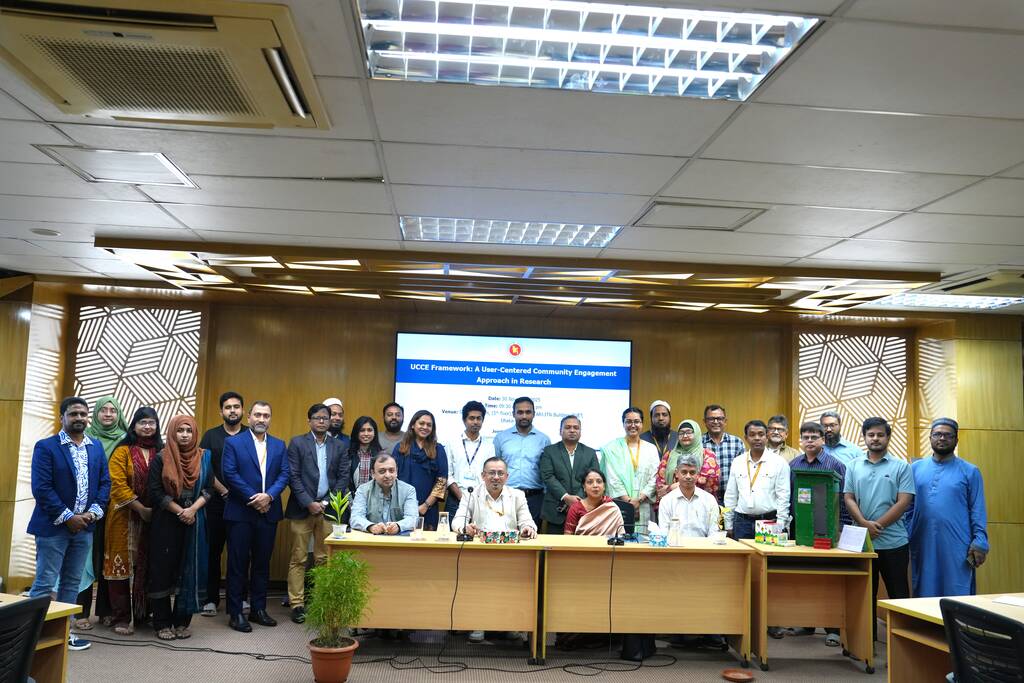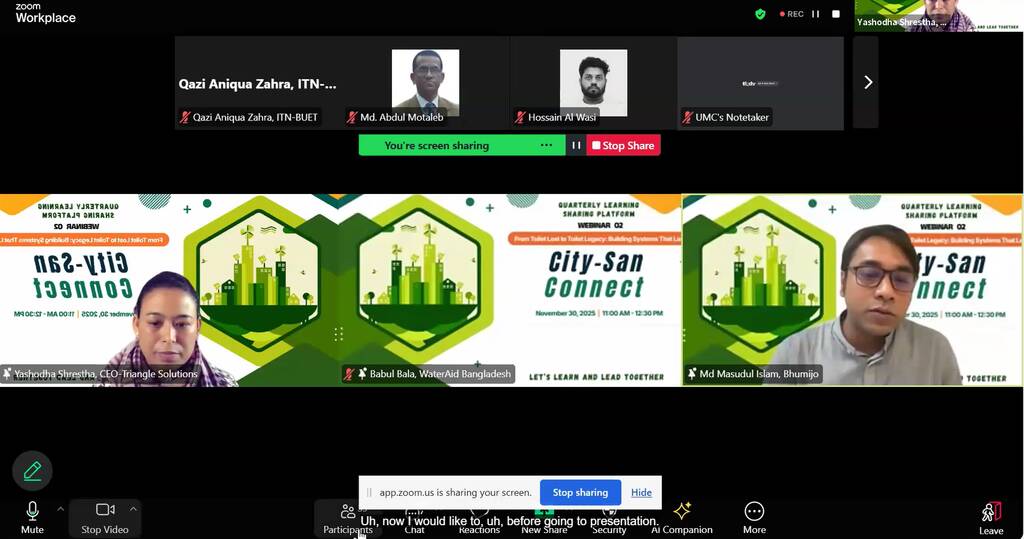Rainwater harvesting systems (RWHS) are a cost-effective and practical nature-based solution to the emerging water crisis in urban areas caused by climate change and rapid population growth. ITN-BUET and WaterAid Bangladesh jointly organized an international training and exposure visit on ‘Urban Rainwater Harvesting System’ during December 11- 14, 2022, at ITN Seminar Room, BUET, Dhaka, to sensitize and capacitate practitioners, planners, academicians, industrialists, students, researchers, and policymakers on RWHS.
The training focused on understanding urban water challenges and the importance, principles, components, planning, designing, and cost-benefit analysis of rainwater harvesting systems. The participants got the opportunity to learn from national and international technical experts, academicians and professionals who have experience in implementing RWHS.
The participants were welcomed to the 4-day training program at the inaugural session on December 11, 2022. Mohammad Zobair Hasan, member secretary of the International Water Association (IWA) Bangladesh chapter and Deputy Executive Director (DED) of the Development Organization of the Rural Poor (DORP), stated that rainwater harvesting systems are critical for the country, particularly in coastal areas of Bangladesh where people are experiencing an acute freshwater crisis due to salinity. He also mentioned that rainwater harvesting is more common in the southern regions, but urban areas are increasingly focused on rainwater harvesting to minimize the strain on water resources. Prof. Dr. Tanvir Ahmed, Director of ITN-BUET, welcomed the participants and explained that this training session was made possible through the collaboration of ITN-BUET and WaterAid. He then presented the International Water Association (IWA) as a platform for regional scaling and a means for international involvement in the implementation of rainwater harvesting systems.
Prof. Dr. Tanvir Ahmed (Director, ITN-BUET), Dr. Kazi Matin Ahmed (Professor, Department of Geology, University of Dhaka), Mr. Md. Tahmidul Islam (Technical Advisor, WaterAid Bangladesh), Syed Azizul Haq (Peng, Adjunct Faculty, University of Asia Pacific), Mr. Md. Ashraful Alam (Principal Architect, Idyllic Design), Suresh Kumar Rohilla (Programme Lead International Water Association), Mr. Md. Azizur Rahman (Assistant Director-Research, ITN-BUET), Mr. Maharam Dakua (CEO, ASGD) and Ms. Nowrin Mow (Programme Officer, WaterAid Bangladesh) facilitated interactively designed sessions of the course. For demonstrating the use of RWHS in the commercial setting, the program included a field visit to Mobil House, a LEED-certified commercial building in Gulshan Avenue, Dhaka.
On December 14, 2022, during the closing ceremony, certificates were awarded to the participants. Ms. Hasin Jahan, the Country Director of WaterAid Bangladesh, stated during this occasion that it is essential to promote RWH among the youth so that they can become youth ambassadors for RWH and have a significant impact on reducing future water crises. She asserted that WaterAid Bangladesh intends to continue this initiative throughout the coming years. Speaking on the occasion, Prof. Dr. Tanvir Ahmed noted that rainwater harvesting is closely related to several SDG goals and that its significance is now widely recognized in both the public and commercial sectors. He thanked WaterAid Bangladesh for their assistance with the organization of this program and expressed his desire to continue working with them in the future.
Mr. Alauddin Ahmed, Project Manager of ITN-BUET and Mr. Md. Tahmidul Islam, Technical Advisor of WaterAid Bangladesh, were also present and thanked everyone for attending the program
A total of 24 participants participated in the training event, including representatives from academia, research institutes, I/NGOs, consulting firms, and industries. They highly appreciated the training curriculum, which incorporated lessons from real-world applications. They committed to disseminating the learnings from the training and applying the acquired knowledge in their respective fields.







